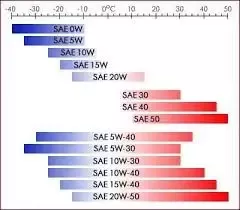Preventing crankshaft failure is crucial for maintaining the health and longevity of your vehicle’s engine. A failing crankshaft can lead to catastrophic engine damage and costly repairs. By following these preventive measures, you can minimize the risk of crankshaft failure and ensure smooth engine operation.
Causes of Crankshaft Failure
Before discussing preventive measures, it’s essential to understand the common causes of crankshaft failure:
- Oil absence or inadequate lubrication on journals
- High operating oil temperature
- Mechanical damage before installation
- Improper torque application
- Vibration and stress concentrations
Preventive Tips for Extending Crankshaft Life
Follow these tips to prevent crankshaft failure and prolong the lifespan of your engine:
| Tips | Description |
|---|---|
| 1. Maintain Proper Lubrication | Ensure adequate oil levels and use the correct oil specified by the manufacturer. |
| 2. Monitor Oil Temperature | Keep an eye on the operating oil temperature to prevent overheating. |
| 3. Proper Installation | Avoid mechanical damage during installation and ensure correct torque application. |
| 4. Reduce Vibration | Address any factors that contribute to engine vibration and stress concentrations. |

Credit: www.ebay.com
Regular Maintenance is Key
Regular maintenance plays a crucial role in preventing crankshaft failure:
- Perform regular oil changes to keep the engine lubricated.
- Inspect the engine for any signs of wear or damage.
- Clean or replace air filters to prevent debris buildup.
- Maintain the cooling system to prevent overheating.
Importance of Proper Lubrication
Proper lubrication is vital for the health of the crankshaft:
- Use the correct oil viscosity and quality recommended by the manufacturer.
- Ensure the engine has an adequate oil supply at all times.
- Avoid mixing different oil types or using old and contaminated oil.

Credit: medium.com
Frequently Asked Questions of How Do You Prevent Crankshaft Failure? Essential Tips
What Causes a Crankshaft to Fail?
Crankshaft failures can be caused by various factors such as lack of oil, defective lubrication, high oil temperature, misalignments, improper journal bearings, vibration, high stress concentrations, improper grinding, and improper clearance between journals and bearings. Adequate maintenance, including regular oil changes and inspections, can help prevent crankshaft damage.
Maintaining proper lubrication, cooling, and alignment is essential to extend the life of the crankshaft.
How Does A Crankshaft Get Damaged?
Crankshafts can get damaged due to low oil levels, dirty oil, poor maintenance, overheating, and insufficient lubrication. These factors can lead to the crankshaft seizing up or experiencing accelerated wear and debris buildup, resulting in damage over time.
What Destroys A Crankshaft?
Various factors can lead to crankshaft failure, such as low oil levels, dirty or deteriorated oil, inadequate lubrication, and poor maintenance practices. Misalignments, high operating oil temperature, or inadequate lubrication can also contribute to crankshaft damage.
How Long Should A Crankshaft Last?
Under ideal conditions, a crankshaft can last indefinitely. However, due to their composition and potential weaknesses, they are subject to wear and damage. The key factor in ensuring a long-lasting crankshaft is proper lubrication. Regularly maintaining a steady flow of clean oil will help the bearings function smoothly and extend the lifespan of the crankshaft.
Conclusion
By following these preventive tips and maintaining your vehicle’s engine regularly, you can minimize the risk of crankshaft failure and extend the lifespan of your engine. Remember, prevention is always better than dealing with costly repairs after a failure occurs.
Read More:


